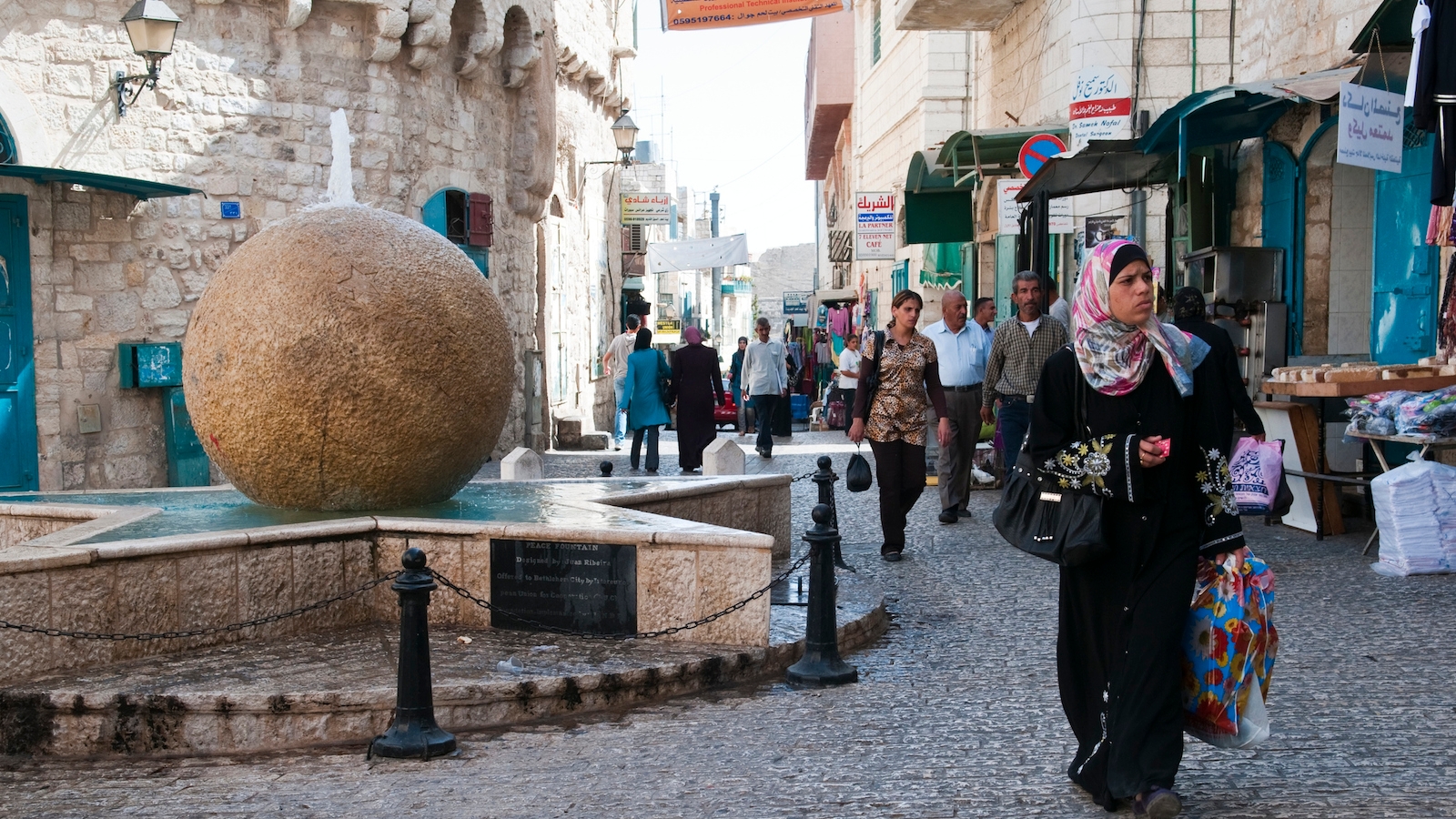The Palestinian people are an Arab ethno-nationalist group residing primarily in the West Bank, the Gaza Strip, Israel, Jordan and parts of southern Lebanon and Syria. Significant Palestinian communities are located in other countries as well, including Saudi Arabia and the United States, which is home to about 85,000 people of Palestinian descent according to a 2013 U.S. Census figure.
There are roughly 14.5 million Palestinians in the world, according to a 2023 estimate from the Palestinian Central Bureau of Statistics, the vast majority of whom are Sunni Muslims, though a significant minority is Christian. Over 5 million live in the West Bank and the Gaza Strip, and another 2 million in Israel. The remaining population lives elsewhere, mostly as refugees, with the largest communities in Jordan, Lebanon and Syria.
Palestinian Arab citizens of Israel, the majority of them descended from Palestinians who remained in the country after the 1948 war, constitute about one-fifth of the Israeli population. Though they are typically identified as Arab-Israelis to distinguish them from Palestinians who live in the West Bank and Gaza, many of them strongly identify with the Palestinian people and consider the term “Arab-Israeli” a misnomer. “We are Palestinians by nationality, and we are Israeli citizens,” Ahmad Tibi, an Arab member of the Israeli parliament, said in a 2019 interview. The relationship between Palestinian Israelis and the state is complex and often fraught, with many believing that the country discriminates against them in concrete ways. Still, surveys often show that a majority would prefer to remain Israeli citizens than accept citizenship in a future Palestinian state.
As of 2019, about 5.6 million Palestinians were considered refugees by the United Nations because they or their forebears were displaced by wars with Israel. The 1951 U.N. convention on refugees makes no provision for the status of refugee to be passed on to descendants, but the United Nations Relief and Works Agency, or UNRWA, which is tasked with assisting Palestinian refugees, extends refugee status to the descendants of Palestinians who personally fled homes in what is now Israel.
With your help, My Jewish Learning can provide endless opportunities for learning, connection and discovery.
Like many issues colored by the decades-long Israeli-Palestinian conflict, how and when a distinct Palestinian national identity emerged is a matter of some dispute. Some consider an 1834 revolt against an Egyptian plan to draft young Palestinian men into the army and impose a head tax as a formative moment in the emergence of Palestinian national consciousness. But it’s widely acknowledged that the rise of Zionism and the migration of significant numbers of Jews to the territory then known as Palestine in the early 20th century profoundly shaped Palestinian identity, even if it didn’t create it.
Some right-wing Israeli figures have suggested that this dynamic undermines the legitimacy of Palestinian claims of nationhood and the corresponding drive to establish an independent Palestinian state. At times, they have also suggested that nothing separates Palestinians linguistically, religiously or culturally from other Arab-speaking peoples and that their national identity is largely constructed around opposition to Israel. Naturally, Palestinians — along with much of the world — reject this contention as baseless at best, and racist at worst. Palestinians undeniably see themselves as possessing a unique national identity that confers on them the right to a national homeland, a position long endorsed by the international community.
The 20th century was a difficult one for the Palestinians. Israel’s 1948 War of Independence — which Palestinians refer to as the Nakba, or “catastrophe” — resulted in more than 700,000 Palestinians fleeing or being driven from their homes in what is now Israel. Hundreds of Palestinian villages were also destroyed in the course of the fighting. A similar though smaller exodus occurred in the wake of the 1967 Six-Day War.
The status of Palestinian refugees has long been one of the core issues at the heart of the Israeli-Palestinian conflict. Palestinian refugees have long claimed that international law guarantees them the right to return to their homes, citing U.N. General Assembly resolution 194, adopted in December, 1948, which states that “refugees wishing to return to their homes and live at peace with their neighbours should be permitted to do so at the earliest practicable date.” For its part, Israel largely considers this claim a non-starter, fearing that the return of millions of Palestinians is neither feasible nor just and would demographically overwhelm the country, erasing its Jewish character.



